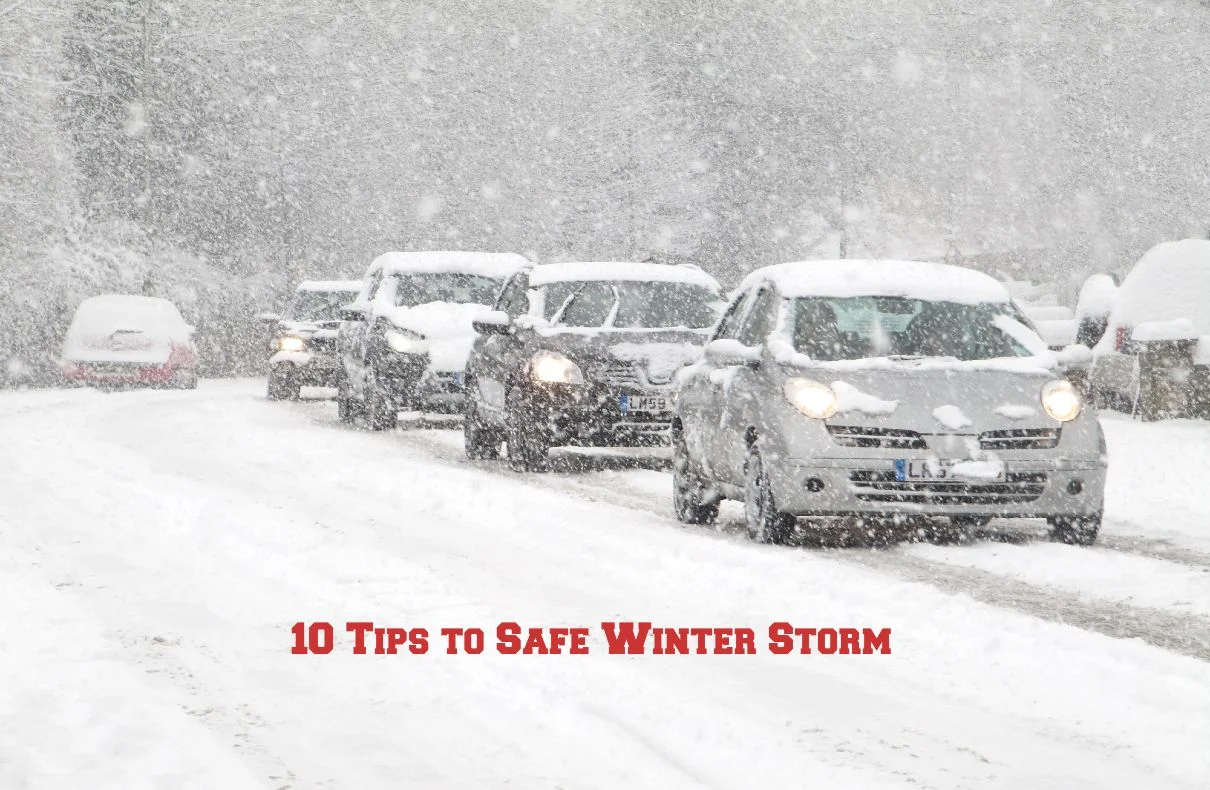To stay safe during a winter storm, follow these guidelines:
1. Stay informed: Keep up-to-date with weather forecasts and warnings from reliable sources. Listen to local authorities and follow their instructions.
2. Prepare your home: Insulate your pipes to prevent them from freezing and bursting. Ensure that your heating system is working properly and have alternative heating sources, such as a fireplace or space heater, in case of a power outage. Have emergency supplies like flashlights, batteries, non-perishable food, and water stored.
3. Stock up on essentials: Before the storm hits, make sure you have enough food, medication, and other necessary supplies to last a few days. Have a battery-powered or hand-cranked radio to stay connected in case of power loss.
4. Create an emergency kit: Put together a winter storm emergency kit that includes items like warm blankets, extra clothing, gloves, hats, and boots. Also, include a first aid kit, a portable phone charger, and any necessary medications.
5. Travel with caution: If you need to go out during a winter storm, take precautions while traveling. Always let someone know your destination and expected arrival time. Drive slowly, allow extra time for braking, and keep a safe distance between vehicles. If conditions become too hazardous, find a safe place to pull over and wait until it is safe to continue.
6. Stay indoors: During a winter storm, it is generally safest to stay indoors. Avoid unnecessary trips outside and limit exposure to the elements. If you must go outside, dress in layers and cover exposed skin to prevent frostbite.
7. Be cautious with heating sources: If you are using alternative heating sources like space heaters or fireplaces, make sure they are properly ventilated and installed according to manufacturer guidelines. Keep flammable materials away from heat sources and never leave them unattended.
8. Be aware of carbon monoxide (CO) poisoning: Winter storms can lead to power outages, which may prompt the use of generators, charcoal grills, or propane/gas-powered appliances indoors. These can produce CO, an odorless and deadly gas. Ensure proper ventilation and placement of these devices to prevent CO buildup, and install CO detectors in your home.
9. Stay connected: Keep your cell phone and other electronic devices charged in case of power outages. Have a backup method of communication, such as a battery-powered or hand-cranked radio, to stay informed and reach out for help if needed.
10. Check on vulnerable individuals: Reach out to elderly neighbors, people with disabilities, or anyone who may need assistance during a winter storm. Offer help, ensure they are safe, and provide any necessary support.
Remember, safety should be your top priority during a winter storm. Follow these guidelines and always use your best judgment to protect yourself and others.
